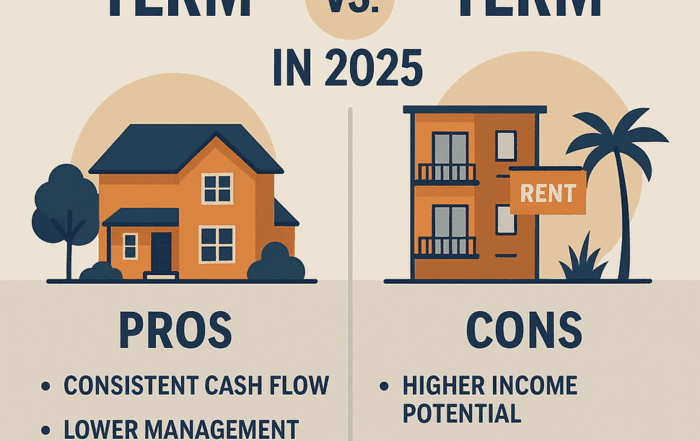
Why Most People Think Flipping is Easy and Profitable
Flipping houses has captured imaginations everywhere, mainly because of reality TV shows and social media influencers who make it look like anyone can buy, fix, and sell a home for enormous profits. While flipping houses can indeed be rewarding, the reality is far from what’s depicted on screen. Success in flipping isn’t just about picking up a hammer or grabbing a paintbrush; it’s a business that requires careful planning, extensive knowledge, and, yes, sometimes even luck. This article will peel back the layers of why most people think flipping is easy, dive into the misconceptions that lead many new investors astray, and reveal the true challenges that seasoned flippers face daily.
The Influence of Media on Perceptions of House Flipping
1. The Role of TV Shows
Popular TV shows like Fixer Upper and Flip or Flop have had a significant impact on how the general public perceives house flipping. On these shows, audiences watch as hosts buy distressed properties, transform them beautifully, and sell them for jaw-dropping profits. These shows often highlight profitable deals, giving viewers the impression that flipping is a simple path to easy money.
In reality, these shows skip over many of the challenges and risks involved, and they rarely depict losses. Most episodes don’t cover the months of hard work, the endless calculations, or the surprises that pop up during renovations. Instead, the process is squeezed into a 30-minute or one-hour episode, and viewers see only the “highlights” without the actual blood, sweat, and tears that go into each project.
2. The Impact of Social Media
Social media influencers have also contributed to this perception by frequently posting about their “wins” while often neglecting to mention losses or setbacks. You’ll see Instagram posts with stunning before-and-after photos, captions about how “anyone can do this,” and tips on “flipping with zero money down.” Unfortunately, this creates a false sense of ease and accessibility around flipping, especially for newcomers.
3. Survivorship Bias
There’s a psychological aspect called “survivorship bias” at play here as well. We mostly see the success stories of flippers who made it big, but we rarely hear from those who failed or struggled. When we only see winners, it’s easy to assume that flipping is a surefire way to profit. In reality, for every success story, many flippers find themselves over budget, overwhelmed, and occasionally bankrupt.
Misconceptions About House Flipping
“It Looks Easy on TV”
Watching a house flip from start to finish in 30 minutes can lead people to believe it’s a quick, painless process. Shows leave out the lengthy parts of the process, like permits, financing, and dealing with unexpected problems. They also make it seem like every flip ends in a big payday, which is far from the truth.
“Anyone Can Do It”
Flipping seems accessible because it’s shown as an achievable, do-it-yourself project. But behind the scenes, experienced flippers often have a large team to support them. These teams typically include contractors, designers, real estate agents, and inspectors. New investors lack this advantage and often have to juggle multiple roles on their own, from finding properties to managing the renovation. For many, this results in unexpected stress, higher expenses, and errors that can be costly.
“Big Profits Every Time”
TV shows and social media create an illusion that flipping always yields massive profits. While this can be true, profits are affected by numerous factors that aren’t always predictable. Market trends, repair costs, holding costs, and buyer interest can all vary greatly from project to project. There’s also usually a long wait time before any profits are realized, something that’s rarely highlighted on screen.
Realities of Finding Flips and Where They’re Hidden
MLS (Multiple Listing Service)
Most investors start looking for properties on the MLS, a database that includes homes listed by licensed agents.
- Early Bird Advantage: Profitable flips on the MLS are snatched up quickly, often within hours of being listed. Successful investors who work with the MLS typically have cash on hand and move fast.
- Challenges: MLS flips are highly competitive, and finding good deals is no easy feat. Investors need either cash or quick financing to stay competitive, and good flips often require careful vetting to avoid costly surprises.
Off-Market Deals Through Wholesalers
Many flippers rely on wholesalers who specialize in finding off-market deals.
- What They Are: Wholesalers locate distressed properties and negotiate with homeowners who want to sell fast, often at a lower price.
- The Reality: Not all off-market deals are highly profitable. Wholesalers may only secure properties that offer $20,000–$30,000 profit margins after expenses.
- Buyer Beware: Buying properties from wholesalers requires caution. Some may not disclose issues with the property, leaving investors with unexpected repair costs.
Understanding the 70% Rule: A Flipping Formula
The 70% rule is a general guideline that helps investors determine if a property has profit potential. According to this rule, investors should aim to buy a property at 70% of its After Repair Value (ARV), minus the cost of repairs.
- Example Calculation: If a home’s ARV is $100,000 and it needs $20,000 in repairs, a flipper should pay no more than $50,000.
- Why 70%? This percentage accounts for various costs associated with flipping, such as agent commissions, closing costs, and a 20% target profit margin.
Beyond the 70% Rule: Other Considerations
Absolute vs. Relative Profit Goals
For experienced investors, profit targets aren’t always based on a percentage. Some prefer absolute profit goals (e.g., $25,000 per flip) over a percentage-based approach. Depending on financing methods, they might seek specific cash-on-cash returns and adapt their strategies as market conditions change.
Negotiation and Flexibility
While the 70% rule is a helpful guideline, skilled flippers know when to bend it. Some deals with high upside potential might justify a higher initial investment, but this flexibility comes with increased risk.
Why Cosmetic Repairs Are Often More Profitable
Low-Risk, High-Return Repairs
One strategy successful flippers use is to focus on properties that only need cosmetic upgrades, like new paint, fixtures, and landscaping. These upgrades typically have lower costs and fewer surprises, making them attractive for quick returns.
Avoiding the “Daisy Chain” of Problems
In contrast, properties needing significant structural repairs can turn into a nightmare, with one problem leading to another. For example, tearing down walls might reveal electrical or plumbing issues that increase both repair costs and timelines. Novices are often unprepared for these complications and find themselves spending more than they anticipated.
Realistic Profits: What New Flippers Can Expect
Average Profit Margins
Beginners can expect profit margins between $20,000 and $30,000 per flip. While high-value flips with profits of $50,000 or more do happen, they’re rare for new flippers. Experience and a strong team are often required to achieve larger profits.
Hidden Costs
Beyond the obvious expenses, there are hidden costs that eat into profits. Holding costs, like mortgage interest, utilities, insurance, and taxes, can quickly accumulate, especially if a flip takes longer than planned.
Preparation: Setting Up for Success Before You Begin
Getting Finances in Order
One of the biggest mistakes new flippers make is starting a project without adequate funds. Successful flipping requires either cash or financing lined up beforehand. Having pre-approved loans and emergency funds can help reduce risk and prevent delays.
Building a Reliable Team
A reliable team can make or break a flip. This team usually includes a real estate agent, contractor, inspector, and sometimes a designer. Experienced team members can spot red flags early on and help streamline the process, saving both time and money.
Market Research
Understanding the local real estate market is crucial. It’s essential to know which types of homes and neighborhoods are in demand. Flipping in a hot market where there’s a high demand for remodeled homes increases the chances of a successful sale.
Key Takeaways for Aspiring Flippers
- Set Realistic Goals: Don’t go in expecting to make six figures on your first flip. Start with achievable targets.
- Do the Homework: Thorough market research, careful property vetting, and preparing finances are crucial.
- Adapt the 70% Rule to Your Strategy: Some deals require flexibility, but only if you’re comfortable with the associated risks.
- Start Small: Focus on properties needing only cosmetic repairs to minimize risk, build experience, and increase the chances of a profitable flip.
Conclusion
Flipping can indeed be profitable, but it’s far from easy. With a realistic approach, plenty of preparation, and a willingness to tackle unexpected challenges, you can find success in the world of flipping. So, the next time you’re inspired by a house-flipping show or a social media post, remember that real-life flipping is far more complex than what you see on screen. With the right mindset and strategies, though, you can turn this business into a rewarding venture—one flip at a time.
OUR BEST ARTICLES
Can Buying Real Estate in Florida Help You With Immigration?
Jorge Vazquez2025-07-07T18:54:31+00:00July 7th, 2025|Comments Off on Can Buying Real Estate in Florida Help You With Immigration?
Can Buying Real Estate in Florida Help You With Immigration? So you’re wondering, “If I buy a couple rental [...]
Long-Term vs. Short-Term Rentals in 2025: Which Strategy Wins?
Jorge Vazquez2025-07-07T03:10:20+00:00July 7th, 2025|Comments Off on Long-Term vs. Short-Term Rentals in 2025: Which Strategy Wins?
In 2025, the real estate world feels a little like a game show. Behind door one: long-term rentals—steady, reliable, [...]
What Does “Return” in Real Estate Really Mean? (And Why It’s More Than Just Rent Checks)
Jorge Vazquez2025-07-05T13:45:00+00:00July 5th, 2025|Comments Off on What Does “Return” in Real Estate Really Mean? (And Why It’s More Than Just Rent Checks)
What Does “Return” in Real Estate Really Mean? (And Why It’s More Than Just Rent Checks) Ever hear someone [...]
What Does Cap Rate Mean in Real Estate (And Why I Actually Use It)
Jorge Vazquez2025-07-05T13:43:14+00:00July 5th, 2025|Comments Off on What Does Cap Rate Mean in Real Estate (And Why I Actually Use It)
What Does Cap Rate Mean in Real Estate (And Why I Actually Use It) Alright, I’m gonna break this [...]
Real Estate Investment Analysis: How to Know If a Deal Is Actually Worth It
Jorge Vazquez2025-07-05T13:37:26+00:00July 5th, 2025|Comments Off on Real Estate Investment Analysis: How to Know If a Deal Is Actually Worth It
Real Estate Investment Analysis: How to Know If a Deal Is Actually Worth It You know how some people [...]
What Kind of Passive Income Do You Really Want? (And Why I Still Love Ugly Rentals)
Jorge Vazquez2025-07-04T16:05:15+00:00July 4th, 2025|Comments Off on What Kind of Passive Income Do You Really Want? (And Why I Still Love Ugly Rentals)
What Kind of Passive Income Do You Really Want? (And Why I Still Love Ugly Rentals) You [...]
Ready to take your real estate investing knowledge to the next level? Join our Property Profit Academy today! https://www.propertyprofitacademy.com

Meet our Team of Experts!
Meet Cody Bergstrom, Your Expert in Finding Deals
My team and I have over 20 years of experience in real estate. We have strong relationships with wholesalers, probate lawyers, sellers, and others in Florida. I aim to align your investments with your vision and deliver exceptional results. Contact Vanessa to schedule a meeting: https://graystoneig.com/cody

Meet Lisa Kaye Price, the LendingGig Top MLO
Lisa-Kaye Price – Real Estate Lending Specialist
With 20 years in real estate, Lisa-Kaye is dedicated to helping clients achieve their investment goals through strategic financing. She and her team focus on securing the best financing solutions to maximize leverage – a unique advantage of real estate investing.
Offering various options, including conventional loans, asset-backed and private money solutions, and programs for foreign nationals, Lisa’s expertise ensures clients get the support they need, whether buying new properties or refinancing.
Schedule a meeting with Lisa: https://graystoneig.com/lisa-kaye-price
Meet Marylyn Patankar, Your Property Manager Partner
Hello, I’m Marylyn Patankar, the Field Manager and New Client Ambassador at Graystone Property Management. I educate investors about our perks, onboard new landlord investors, and manage on-site operations. Schedule a meeting with me here: https://graystoneig.com/marylyn






